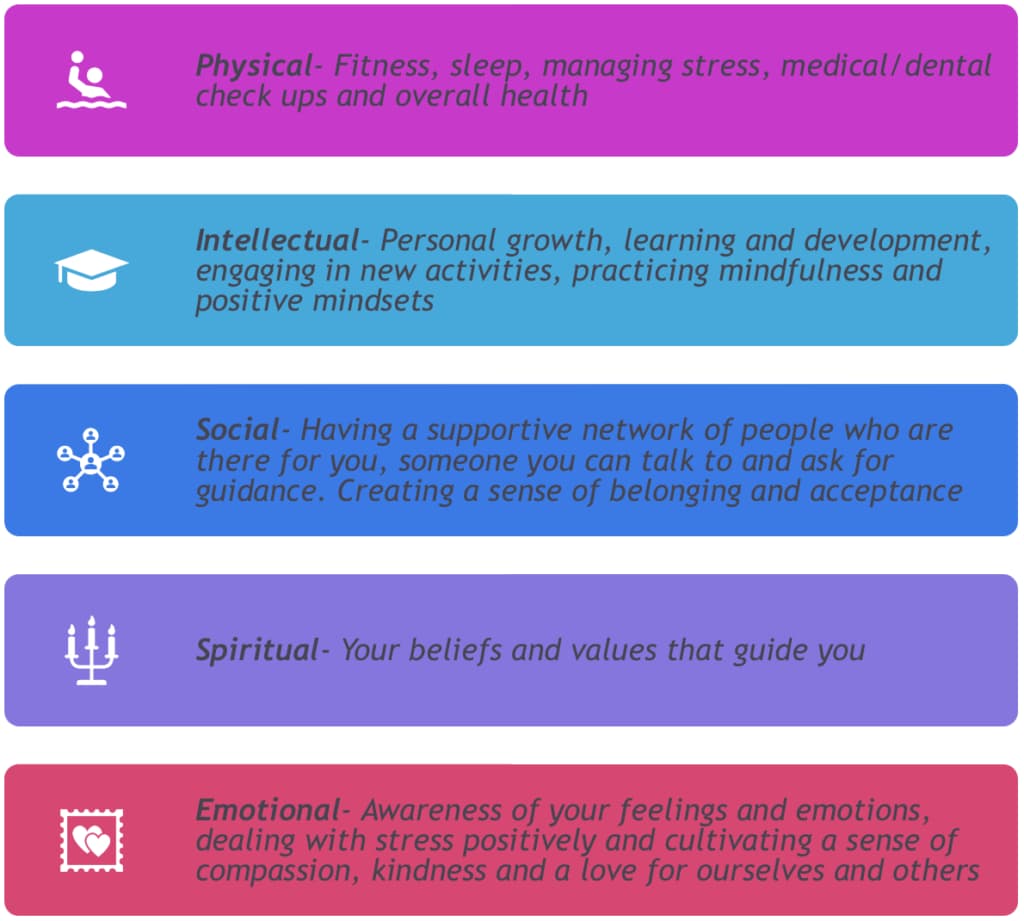.jpg)
Organising Self-Care
Self-care is something the people in the veterinary profession are rubbish at (if I must put it bluntly). I hear excuses about not having enough time or just not being bothered. Self-care is so important to do and the benefits include making ourselves feel much happier and healthier. Looking after ourselves properly can prevent us from getting compassion fatigue and burn out.
We can build mental resilience whilst cultivating self-care into our daily lives. I thought I would talk about how to organise your self-care in a way that you can manage and tailor it to your busy working days.
Why is organising important?
Helps us to organise our lives better
Makes us feel more in control and grounded
Improves self-care
Creates routines and healthy habits
Clutter-Free- both physically and mentally
The Dimensions of Self-Care
The dimensions of self-care (Figure 1) are split into 4 groups; physical, intellectual, social, spiritual and emotional. We need to be focusing on all of these aspects when we think about self-care.
 Figure 1; The Dimensions of Self-care
Figure 1; The Dimensions of Self-care
Physical is all about your health so your fitness, how much sleep you are getting, how you manage stress, your medical/dental checkups, your sexual health and overall health in general.
Intellectual self-care involves personal growth, learning and development so for us it’ll be CPD, engaging in new activities, practicing mindfulness and a positive mindset.
Social self-care involves making sure you have a good supportive network of people who are there for you when you need a chat and need help and guidance. Support might be in the form of a charity or a stranger on the end of the phone. This self-care is about creating a sense of belonging and acceptance of yourself.
Spiritual self-care is about your beliefs and values so religion for example.
Emotional is about being aware of your feelings and emotions, its dealing with stress in a positive way and cultivating a sense of compassion, kindness and a love for ourselves and others.
We can incorporate these dimensions with a bit of organization and habit tracking.
Organising Self-care
Create morning and night routines
This will fall into physical self-care; it is making sure you are getting enough sleep as this can often be the cause of exhaustion, which can exacerbate other problems like anxiety. For morning routines, you might want to get up earlier so you can journal or have some thinking time before the busy day begins, this is emotional self-care. A night routine will consist of winding down, this might be by doing some yoga before bed to relax. Ensure that everything is ready for the next day to prevent you from rushing so much in the morning.
Meal Prep
Cook healthy meals on a Sunday evening and freeze them. This will essentially save you time so that you can spend your evenings not worrying about your next work lunch.
Keep a diary
Write down your self-care in a diary, this will make you feel more organised. Schedule in dates with friends and family so you can accommodate your emotional self-care.
Create an organised workspace
If you have a clear space you will have a clear mind. This might not only be your work desk but your home. Spot clean it in the evening, so you don’t have to worry about clutter the next day.
Exercise
Make time for exercise even if it is just 30 minutes per day. This could be in the form of a home workout, a walk on your lunch break or hitting the gym. Release those endorphins!
Habit tracker
Keep a habit tracker in your diary or make one! This could show you what healthy and bad habits you are cultivating and will visually allow you to see what you need to improve on to become healthier and happier. Ensure you make the dimensions of self-care a part of your habit tracker.
When it comes to self-care remember, treat yourself like you are looking after someone you love and give it your all!
